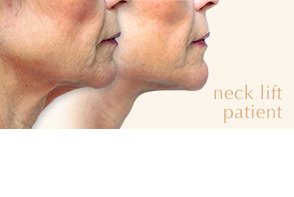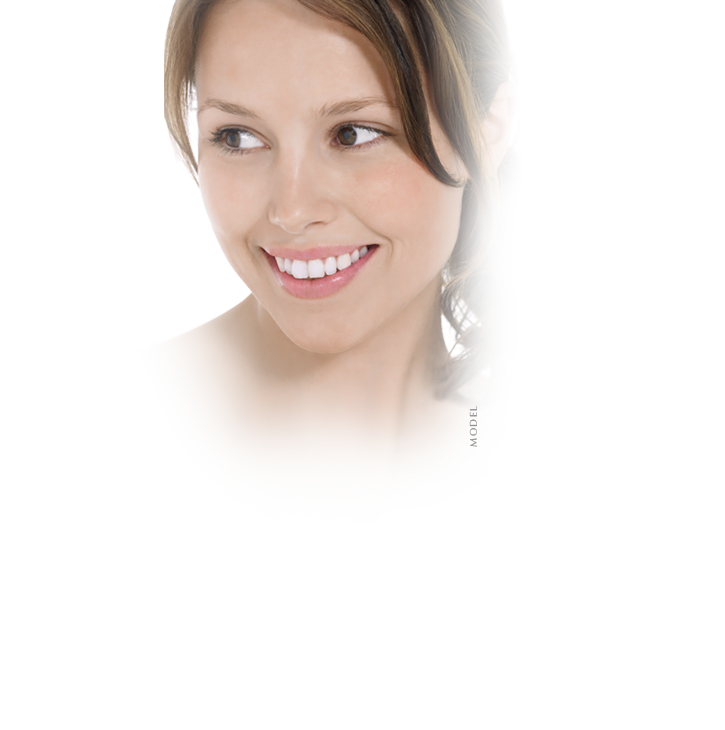Skin Care in Asheville
Enjoy better-looking skin faster with professional skin care
The sheer number of skin care products available today can be overwhelming. Every cosmetics counter, natural food market, and spa offers an abundance of creams and serums that promise to give you smoother, younger-looking skin. How do you know which products and treatments will work for you?
The best way to ensure your skin care will safely deliver the results you want? See a professional with medical skin care training. At a board-certified plastic surgeon’s office, you’ll get knowledgeable guidance to ensure you are purchasing skincare that is safe for your skin type and optimal for your skincare goals.
Prescription-level skincare is available only from a licensed physician for a reason: these products contain a higher potency of active ingredients. This makes them more effective than over-the-counter alternatives.
Dr. Conway and our licensed Asheville estheticians offer thorough, one-on-one skincare consultations for every patient.
- Key Benefits
- Glossary
- Higher Concentrations of Active Ingredients: Medical-grade skincare products contain higher levels of active ingredients than over-the-counter products, providing more potent and effective treatments for various skin concerns.
- Clinically Proven Results: Medical-grade skincare products undergo rigorous clinical testing to ensure they deliver the results they claim, offering a higher degree of reliability and effectiveness.
- Deep Penetration: These products are formulated to penetrate deeper into the skin, targeting issues at their source and delivering more significant improvements in skin health and appearance.
- Professional Guidance: Purchasing medical-grade skincare typically involves consultation with a skincare professional, ensuring products are chosen and used correctly for optimal outcomes.
- Innovative and Advanced Formulations: Medical-grade brands often lead the way in skincare innovation, incorporating the latest scientific discoveries and cutting-edge ingredients into their products.
- Long-term Skin Health: Beyond immediate visual improvements, medical-grade products are designed to promote long-term skin health, preventing future damage and maintaining the skin’s youthful appearance.
- Active Ingredients: Components in skincare products responsible for delivering specific benefits to the skin, such as retinol for aging or salicylic acid for acne.
- Clinical Trials: Research studies testing the efficacy and safety of skincare products on human participants, ensuring medical-grade products meet high standards.
- Dermatologically Tested: Indicates skincare products have been tested under dermatologist supervision for skin safety and effectiveness.
- Efficacy: The ability of a product to provide intended benefits, with medical-grade skincare often offering higher efficacy due to potent active ingredients.
- Formulation: The specific combination of ingredients in a skincare product, designed for optimal skin delivery and absorption in medical-grade skincare.
- Hydration: Increasing the water content of the skin, essential for maintaining skin elasticity, smoothness, and health.
- Inactive Ingredients: Components in skincare products that support the formulation, such as preservatives, stabilizers, and textures, without directly impacting skin condition.
- Medical-Grade Skincare: Products available through licensed professionals, containing higher active ingredient concentrations than over-the-counter options.
- Over-the-Counter Skincare: Skincare products available without a prescription, typically featuring lower concentrations of active ingredients than medical-grade skincare.
- pH Level: Measures a product’s acidity or alkalinity; medical-grade skincare is often formulated to match the skin’s natural pH.
- Potency: The strength of active ingredients in skincare products, with medical-grade items typically offering higher potency for significant results.
- Retinoids: A class of compounds derived from vitamin A, used in skincare for their ability to promote skin renewal, reduce acne, and diminish age signs.
- Retinol: A type of retinoid used in skincare to combat wrinkles, increase skin turnover, and improve skin texture and tone, available in various concentrations.
- Serums: Lightweight skincare products with high concentrations of active ingredients designed to target specific skin concerns like aging, hydration, or brightness.
- Skin Barrier: The outermost skin layer, protecting against environmental stressors; many products aim to strengthen this barrier.
- Skin Type: Classification based on skin characteristics and behavior, important for choosing suitable skincare products.
- SPF (Sun Protection Factor): A measure of how well a sunscreen protects skin from UVB rays, crucial for preventing sun damage and skin aging.
Your Asheville Professional Skincare Options
Obagi
Featuring superb quality, prescription-strength formulas, Obagi skincare is designed to help patients of any age or skin type get more youthful, healthier-looking skin through skincare systems that address skin aging on multiple levels for more comprehensive, lasting results. Obagi has options to address many common skin concerns:
- Fine lines, wrinkles and dull texture
- Acne and oily skin
- Redness, inflammation and pigmentation problems
- Aging eyelid skin
ZO Medical
Obagi founder and board certified dermatologist Dr. Zein Obagi has developed a wide spectrum of therapeutic products that create and maintain healthy skin. These products and protocols help physicians provide continuous skin health for all skin types, genders, and ages. Dr. Conway may recommend ZO Medical products to treat skin conditions such as rosacea, acne, or hyperpigmentation as well as to repair visible sun damage and prevent premature skin aging.
LaRoche-Posay
Many skin care companies have an option or two for sensitive skin, but it is unusual to find a brand that ensures all of its products are suited to sensitive skin. LaRoche-Posay states in its formulation charter that all ingredients in its products be compliant with sensitive skin.
Offering an extensive selection of dermatologist-tested sunscreens, moisturizers, anti-aging serums, and acne treatments, LaRoche-Posay products are popular among our Asheville patients who want their skin to look and feel its best.
Dermalogica
Emphasizing skin health over beauty, Dermalogica products are free from common irritants and contain only the highest-quality, cruelty-free ingredients. With affordable options ranging from sunscreens, masques and toners to complete systems designed to calm acne, reduce fine lines and age spots, or balance discoloration, Dermalogica has something for everyone.
SkinCeuticals
When it comes to advanced anti-aging skincare, SkinCeuticals has become one of the most highly sought-after physician-only skincare lines available. SkinCeuticals’ clinically proven formulas are based on decades of scientific research into the benefits of anti-oxidants for skin health.
SkinCeuticals operates on the philosophy that to get healthy, radiant skin, you must protect from sun damage, prevent against age-causing free radicals, and correct existing signs of damage. Their premium sunscreens, serums, moisturizers, and anti-oxidant solutions are scientifically tested to deliver safe, timely and consistent results.
Frequently Asked Questions About Medical-Grade Skincare Products
What makes a skincare product “medical grade”?
Medical-grade skincare products earn their title through a rigorous development and evaluation process that sets them apart from over-the-counter options. Medical-grade products are often developed with the oversight of dermatologists or medical professionals, ensuring that they meet stringent standards for penetration and absorption into the deeper layers of the skin. These products are also formulated based on scientific research and clinical trials to ensure their efficacy and safety. They contain higher concentrations of active ingredients and are subject to stricter quality controls.
Medical-grade product lines are typically only sold through licensed healthcare providers, who can offer personalized skincare advice and supervise their use. This level of scrutiny and the clinical validation behind these products justify their classification as “medical-grade,” aiming to address specific skin health issues more effectively than their non-medical-grade counterparts.
Is medical-grade skincare really better than drugstore skincare?
Medical-grade skincare products are often touted as superior to drugstore options due to their higher concentrations of active ingredients, deeper penetration into the skin, and rigorous clinical testing to prove efficacy and safety. On the other hand, over-the-counter skincare products are more accessible and budget-friendly, offering a broad range of options for various skin types and concerns—albeit with potentially lower concentrations of active ingredients.
The decision to switch to medical-grade skincare should be based on specific skin issues, desired outcomes, and whether over-the-counter products have been unable to meet those needs. For individuals dealing with stubborn skin concerns, seeking long-term improvement, or wanting products that are backed by scientific research, investing in medical-grade skincare can provide significant benefits.
How do I know which professional skincare products and brands are right for me?
If you are ready to switch to a medical-grade skincare regimen, Dr. Conway and our licensed estheticians will help you choose the skin care lines and individual products that best suit your skin type, concerns, and budget. Contact us to schedule your own skin consultation with us at our Asheville office.
References »
McDaniel D, Farris P, Valacchi G. Atmospheric skin aging-Contributors and inhibitors. J Cosmet Dermatol. 2018 Apr;17(2):124-137. doi: 10.1111/jocd.12518. PMID: 29575554.
Lin JY, Selim MA, Shea CR, Grichnik JM, Omar MM, Monteiro-Riviere NA, Pinnell SR. UV photoprotection by combination topical antioxidants vitamin C and vitamin E. J Am Acad Dermatol. 2003 Jun;48(6):866-74. doi: 10.1067/mjd.2003.425. PMID: 12789176.
Lin FH, Lin JY, Gupta RD, Tournas JA, Burch JA, Selim MA, Monteiro-Riviere NA, Grichnik JM, Zielinski J, Pinnell SR. Ferulic acid stabilizes a solution of vitamins C and E and doubles its photoprotection of skin. J Invest Dermatol. 2005 Oct;125(4):826-32. doi: 10.1111/j.0022-202X.2005.23768.x. PMID: 16185284.



